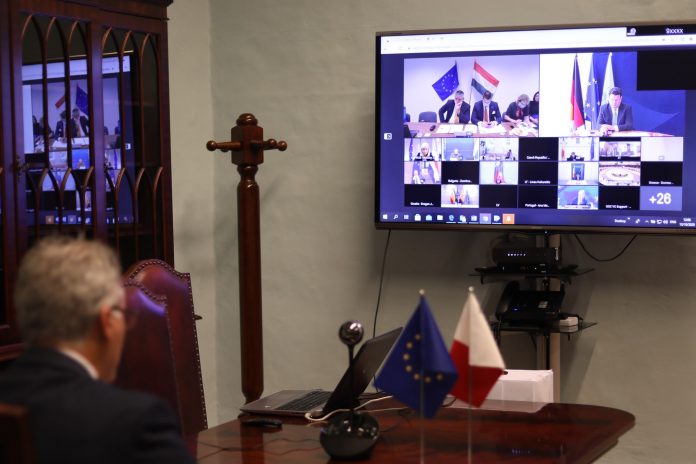Minister within the Office of the Prime Minister Carmelo Abela addresses EU Ministers of Employment and Social Policy on working participation and support for workers in this regeneration phase.
During a discussion with EU counterparts, Minister Carmelo Abela, who is responsible for working conditions, focused on the need for proper employee consultation before taking decisions which will impact jobs and working conditions.
Minister Abela stressed that public authorities must intervene to ensure that workers’ rights in this area are fully enforced.
He referred to how, locally, employers are obliged by law to consult with employees during restructuring situations. In fact, during the pandemic, methods of information and consultation were adapted by the employer representatives, employers and the regulator in order to ensure that employees remained informed about any new developments. In instances where the regulator – the Department for Industrial and Employment Relations (DIER) – found breaches on such rights, action was taken immediately.
“Through effective and immediate communication, as well as concrete and rapid actions, many jobs were saved, whilst at the same time we ensured the effective enforcement of workers’ rights,” highlighted Minister Carmelo Abela.
Minister Abela also stressed the importance of social dialogue between unions and employer bodies alongside the government, and a proactive outlook from all sides.
The second topic on the agenda was the link between employee training and the regeneration of our economies. This, in view of the European Commission €750 billion stimulus plan, coupled with a revised proposal for the EU’s next long-term budget (2021-2027).
In this regard, Minister Abela reiterated that investing in a skilled labour force needs to be the EU’s central policy response. This will enable a better equipped labour market which can adjust to future macro-economic trends.
Minister Abela stated that member states must have access to budgets that can be invested on the upskilling and reskilling of their workforce.
“Malta considers EU funds, in particular the ESF and EGF, as crucially important elements to assist workers and jobseekers while tackling redundancies and employability,” insisted Minister Abela.
Minister Carmelo Abela gave a tangible example, whereby the Malta Tourism Authority has already invested €5 million euro in the tourism industry, one of the hardest hit sectors, via a free top-level training platform to thousands of workers that work in such industry.
Minister Abela, who is also responsible for sustainable development, concluded by remarking that restructuring strategies must also continue to be aligned with the transition to digitalisation and sustainable operations.
Photo: MSD










